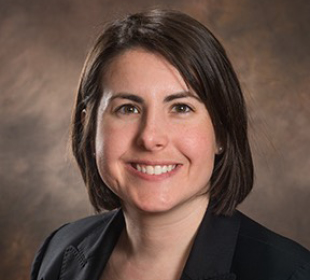Another successful Medicaid Health Plans of America (MHPA) Annual Conference just wrapped up in Phoenix, Arizona. I noticed a recurring theme in nearly every discussion: the need to meet members where they are. Engaging with communities and the Medicaid population is essential to the success of the Medicaid program and to the success of managed care in general.
Only when we connect on a community level can we understand the specific member needs that drive interventional design and implementation, and develop solutions tailored to member needs and goals.
When competitors collaborate, the community wins.
Another interesting takeaway was the idea that managed care organizations are unique in that they can compete on one level – yet collaborate on so many others. While member flexibility and choice of MCOs remains critical to the success of Medicaid programs, target collaboration across MCOs can be beneficial for providers, the community, and members we serve. This is particularly true when we look at the systems and infrastructure that have the greatest potential to improve quality and address social risk factors of vulnerable and under-resourced communities.
A strong open was followed by many valuable breakout sessions/tracks.
The conference started and ended each day with general sessions and then had 3 different themes for the breakout sessions: Operations, Policy, and Technology. UnitedHealthcare Community & State had the honor of serving as a “Mission Moment” conference sponsor for the opening session, which was moderated by Senior Vice President of Policy and Strategic Engagement, Catherine K. Anderson. As Chair of the MHPA Board, she set the tone for the conference, sitting down with U.S. Secretary of Health and Human Services Xavier Becerra and Deputy Administrator & Director of the Center for Medicaid & CHIP Services, Daniel Tsai for a discussion about today’s managed care challenges. The Secretary expressed the need to “make bold, not mild” changes to improve Medicaid access, to expand health care in school settings, and to prioritize behavioral health beyond the 988 suicide and crisis lifeline. He also discussed the implications of the end of the public health emergency.
In another great session, Kevin Moore, CEO of UnitedHealthcare Community Plan of Wisconsin, discussed how the health plan is leveraging its community partners to address the needs of its hard-to-reach members. Kevin was joined by leaders from Reema Health, a platform that uses location-based community guides to personally engage with members, and Socially Determined, which uses precise data analytics to gain visibility into the SDOH risks of member populations. The session underscored the opportunities for MCOs and community partners to identify places of need, build local presence, and cultivate trust with members.
On Thursday, I had the honor of moderating a panel highlighting innovative initiatives where Medicaid Managed Care is partnering in different communities to address social determinants of health.
In total, my UHC Community & State colleagues & I participated in eight different sessions including SDOH initiatives, health equity, pharmacy benefit design, disease management, and more.
Why this conference matters.
The MPHA Annual Conference brings together senior leaders – from as many as 130 health plans and managed care organizations nationwide – as well as state and federal policymakers and Medicaid thought leaders to share best practices for better health outcomes. These are the people who are committed to continuous improvement of managed care, health equity and social determinants of health, and better health outcomes for Medicaid members.
And it’s not just the attendee discussions that make a difference. One of the benefits is gaining new insights from the MHPA leadership. This year they shared 3 newly developed resources, including one on primary care, one on the value CBOs see in the managed care model, and one on the improved care coordination provided by the managed care model.
Ever-changing member needs shape the future of Medicaid.
By 2026, Medicaid is projected to be a trillion-dollar program serving a more diverse population with broader demographics than ever before. The program continues to expand and evolve to address the complex needs of members. Factors such as the shift in membership demographics and the continued increase in the volume of managed care beneficiaries lead to an urgent need for continuous innovation in Medicaid managed care. This conference provides a much-needed collaborative environment that leads to solutions to these pressing needs.
I look forward to attending the 2023 conference and more opportunities to move Medicaid and managed care forward in pursuit of continuous improvement of our efforts to serve our members.
